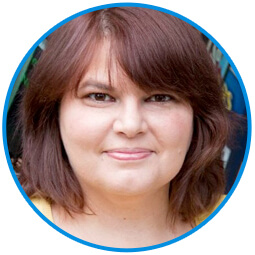Freelance Productivity: How Emilie Lebrun Gets Things Done
Almost every freelancer struggles with productivity, time management and process. We’re all asking how we can get more done without going more crazy. So let’s share. What works for you? Today we talk with Emilie Lebrun. She’s the founder of the second largest WordPress agency in Paris, Whodunit.
Almost every freelancer struggles with productivity, time management and process. We’re all asking how we can get more done without going more crazy. So let’s share. What works for you?
 Today we talk with Emilie Lebrun. She’s the founder of the second largest WordPress agency in Paris, Whodunit. She also the chief operating officer of WP Media, and co-organizer of WordCamp Paris and WordCamp Europe.
Today we talk with Emilie Lebrun. She’s the founder of the second largest WordPress agency in Paris, Whodunit. She also the chief operating officer of WP Media, and co-organizer of WordCamp Paris and WordCamp Europe.
 Today we talk with Emilie Lebrun. She’s the founder of the second largest WordPress agency in Paris, Whodunit. She also the chief operating officer of WP Media, and co-organizer of WordCamp Paris and WordCamp Europe.
Today we talk with Emilie Lebrun. She’s the founder of the second largest WordPress agency in Paris, Whodunit. She also the chief operating officer of WP Media, and co-organizer of WordCamp Paris and WordCamp Europe.
“Control your time and your energy: It’s the most important thing you can do to be productive.” -Emilie LebrunThe conversation covers controlling your time, shutting out distractions and being able to relax.
What’s the most effective thing freelancers can do to be more productive?
The definition of productivity varies from person to person. Some view it as earning a lot of money, some view it as completing a massive to-do list and others view it as building things. After a decade as a freelance artistic director and piling on double duty as a web agency manager and a role as chief operating officer in a startup, I have come to see productivity as a means to be effective. My most important productivity secret? I pay attention to my hours spent working. If you figure out where you spend most of your energy and what your efforts yield, that is key to being productive. Freelancers can benefit from some very good tools out there, like RescueTime, that allow you to track and analyze your activities. You can get a grip on how many hours are spent in front of your laptop, visiting what websites, working on what projects and much more. You can slice and dice this precious information by week, day, activities or projects. If it wasn’t for time tracking, I wouldn’t be able to have side projects, organize WordCamps and find the time to catch up on panda news and other fun activities! Control your time and your energy: It’s the most important thing you can do to be productive.How do you stay focused and productive throughout the day?
Here’s my second tip when it comes to being productive: find your own rhythm, get to know and listen to it. There are times throughout the day when I am most effective in meetings and other background processes. There are other times when I rock at repetitive brainless activities by getting in the zone. My job entails a lot of communication with many different people, on different subjects and sometimes different languages! Being productive can feel like being a stuntwoman sometimes because it feels like someone is zapping on TV (except that it’s real life and my work day!). I learned to roll with it and when I have to concentrate, I put my phone in silent mode, close Slack and mute all notifications (from emails, chats, social media) and listen to motivating background music (imagine a moment when the CSI team on TV focuses… it’s that music!). Having a comfortable work environment is essential: a tidy desk, a well-lit space, several places I can go to think (like a desk, a big floor pillow by the window or a nice Starbucks). I work 100% in remote and I travel a lot so it’s both easier to be isolated and organized and harder to stay focused instead of wandering off (ahem, Instagram). Making time for regular breaks and learning to breathe to relax are also great ways to stay productive.Email is often mentioned as a productivity killer. How do you efficiently manage your email?
I have managed to get rid of most email communication. Yes, it is possible. Most of my exchanges take place in Slack. For everything else, I have three rules:- Do not keep your email constantly open and set aside some designated times to check your emails.
- Do not rush and reply to everything right away. I choose when I answer emails.
- Immediately sort each email in one of these three categories:
- Process: Emails that take more than two minutes to reply.
- Archive: I’m in CC and don’t have to answer.
- Delete: These emails don’t have to be kept.
What other productivity tips do you have for busy freelancers?
You can’t do it all. Trying to complete too many tasks too fast is not productive. Being exhausted at the end of the day doesn’t mean you have been productive. Take a break: Resting is also vital to maintaining your productivity throughout the year. One last tip: Make sure that you do what makes you happy. Define what success means to you and what are the means to achieve it. Being fulfilled in your job is as important as being productive. For more insights, check out our interview with Emilie Lebrun on entrepreneurial success.Sign up now — Get SolidWP updates and valuable content straight to your inbox
Sign up
Placeholder text
Placeholder text
Get started with confidence — risk free, guaranteed